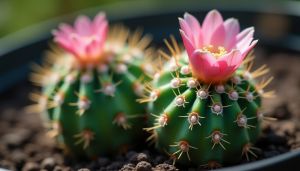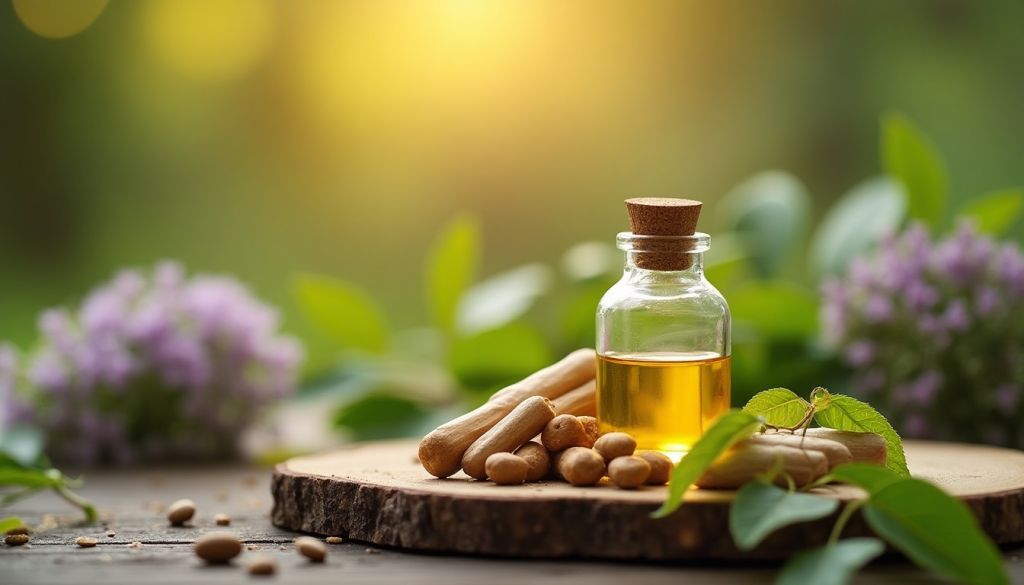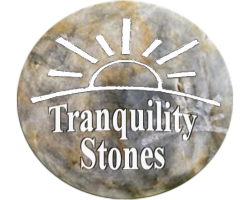Peyote Healing Properties – Holistic Wellness
 Healing experiences can be transformative, and peyote, a cactus native to the southwestern United States and Mexico, has been used for centuries in traditional medicine. As you explore the healing properties of peyote, you’ll discover its potential benefits, including emotional balance, spiritual insight, and relief from chronic pain. Used in various cultural practices, this fascinating plant offers a path towards self-discovery and wellness, inviting you to deepen your understanding of both yourself and the natural world around you.
Healing experiences can be transformative, and peyote, a cactus native to the southwestern United States and Mexico, has been used for centuries in traditional medicine. As you explore the healing properties of peyote, you’ll discover its potential benefits, including emotional balance, spiritual insight, and relief from chronic pain. Used in various cultural practices, this fascinating plant offers a path towards self-discovery and wellness, inviting you to deepen your understanding of both yourself and the natural world around you.
Historical Context
While peyote has been used for thousands of years, its unique healing properties have been deeply intertwined with various cultural practices and beliefs. The plant’s history spans across indigenous populations in North America, who have embraced its use not only for medicinal purposes but also as a spiritual cornerstone. Understanding the historical context provides valuable insight into the significance of peyote in traditional healing practices and its ongoing relevance today.
 Indigenous Use of Peyote
Indigenous Use of Peyote
On many occasions, indigenous tribes, particularly the Huichol and Native American Church practitioners, have utilized peyote as a sacrament for spiritual and medicinal purposes. This sacred cactus has facilitated healing rituals, offering profound insights into one’s spirit and the interconnectedness of life. By participating in these traditional practices, you engage with a rich heritage that honors the plant’s powerful effects on both mind and body.
Cultural Significance
The connection between peyote and indigenous cultures extends beyond mere consumption; it represents a vital aspect of identity and spirituality. For many tribes, peyote is a channel for communication with the divine, fostering a sense of community among participants. This sacred plant often guides individuals through personal transformation and healing, reinforcing the cultural narratives that shape their worldviews.
But the cultural significance of peyote is more than just a tool for healing. It symbolizes resilience and preservation of identity in the face of historical trauma. By cultivating traditions around peyote use, indigenous communities have reclaimed their narratives, establishing their sovereignty and pushing back against colonial practices. As you learn about its importance, you tap into a broader understanding of how peyote shapes lives, carrying profound meaning that resonates deeply within these cultures.
 Chemical Composition
Chemical Composition
There’s a fascinating range of chemicals found within peyote, primarily comprising alkaloids, with mescaline being the most prominent. This psychoactive compound is known for its ability to induce altered states of consciousness. Other alkaloids present include peyocactin, anhalonidine, and hydroxymescaline, all contributing to the plant’s unique therapeutic effects. Understanding this chemical composition is important for grasping the healing properties often associated with peyote.
Active Compounds
For those interested in the therapeutic potential of peyote, the active compounds, especially mescaline, play a significant role. Mescaline binds to serotonin receptors in your brain, evoking profound changes in perception, mood, and cognition, which can lead to various psychological benefits.
Mechanisms of Action
After exploring the active compounds, it becomes evident that their mechanisms of action contribute to the healing properties attributed to peyote. By impacting neurotransmitter systems, particularly serotonin and dopamine, these compounds can facilitate emotional healing, reduce anxiety, and encourage introspection.
Further, the way mescaline interacts with the serotonin receptors not only alters your perception but also promotes neuro plasticity, allowing for fresh insights and personal growth. This modulation of neurotransmitters can help in alleviating symptoms of conditions such as depression and PTSD, thus enabling you to launch on a transformative healing journey when utilized responsibly and within a supportive setting.
Therapeutic Uses
Even as traditional medicine finds new paths, peyote remains revered for its potential therapeutic benefits. Many individuals explore its properties not just for spiritual insight but also for holistic healing. Its active compounds, particularly mescaline, may offer various applications in mental and physical health, making it a captivating area of study and personal exploration.
Mental Health Applications
For those grappling with anxiety, depression, or PTSD, peyote may provide an alternative approach to mental health. Preliminary research suggests that its psychedelic compounds can promote introspection and emotional release, which can be beneficial in therapeutic settings. As you explore these possibilities, consider how peyote may enhance your understanding of your mental landscape.
Physical Healing Properties
One of peyote’s lesser-known attributes involves its potential to support physical healing. Various cultures have used peyote for its anti-inflammatory and analgesic properties, which can alleviate pain and discomfort. Consider how incorporating holistic practices could enhance your overall wellness.
Healing properties of peyote extend beyond spiritual experiences. Many have found relief from chronic pain, headaches, and gastrointestinal issues when integrating peyote into their healing practices. The natural compounds found in peyote may influence your body’s response to pain, promote relaxation, and facilitate healing. It’s vital to approach its use responsibly, ideally under the guidance of a knowledgeable practitioner, to maximize the potential benefits for your physical health.
Contemporary Research
Now, the field of contemporary research surrounding peyote and its healing properties is gaining momentum. This resurgence is attributed to a growing interest in traditional medicine and its potential benefits for modern therapeutic practices. As you explore this area, you will find that researchers are increasingly investigating the intersection of peyote’s psychoactive effects and its role in psychological wellbeing.
Scientific Studies
Across various scientific studies, researchers have highlighted the potential benefits of peyote in addressing mental health issues such as anxiety and depression. These studies demonstrate that the active compound, mescaline, can induce profound experiences that may lead to significant shifts in perception and emotional healing. By examining these findings, you can begin to understand how peyote may be a valuable tool for personal growth and healing.
Clinical Trials
 Between the rising interest in psychedelic therapies and ongoing clinical trials, peyote is increasingly viewed as a viable option for mental health treatment. These trials are designed to assess the safety and efficacy of mescaline in diverse patient populations, especially those with treatment-resistant conditions. They offer you an opportunity to observe how traditional medicine is being integrated into contemporary therapeutic practices.
Between the rising interest in psychedelic therapies and ongoing clinical trials, peyote is increasingly viewed as a viable option for mental health treatment. These trials are designed to assess the safety and efficacy of mescaline in diverse patient populations, especially those with treatment-resistant conditions. They offer you an opportunity to observe how traditional medicine is being integrated into contemporary therapeutic practices.
A key component of these clinical trials involves standardized doses of mescaline to evaluate both short- and long-term effects on mental health outcomes. The trials employ rigorous methodologies to ensure reliability, giving you confidence in the data collected. As results emerge, you can anticipate insights that may solidify peyote’s status as a legitimate therapeutic agent, potentially altering treatment approaches for various psychological conditions.
Legal and Ethical Considerations
Despite the growing interest in peyote’s healing properties, navigating its legal and ethical landscape requires careful consideration. Different regions have varying laws regarding its use, especially for ceremonial and recreational purposes. It’s crucial to be informed about your local regulations and to engage responsibly with traditional practices while respecting indigenous rights and beliefs.
Legal Status
Above all, you should be aware that peyote is classified differently across jurisdictions. In the United States, it is legal for certain Native American religious ceremonies but remains a controlled substance otherwise. Being informed about these laws is vital for anyone considering using peyote for healing.
Ethical Implications
An important aspect to consider is the ethical implications of using peyote. Engaging with peyote requires an understanding and respect for its cultural significance to Native American communities. Your actions should reflect a commitment to honoring their traditions, especially as these practices face pressures from commercialization and exploitation.
Indeed, ethical considerations also extend to awareness of the environmental impacts of peyote harvesting. As you contemplate its use, it’s paramount to support sustainable practices that protect peyote populations and their natural habitat. Being mindful of the cultural context and the community surrounding peyote use fosters a respectful relationship, ensuring that you contribute positively to the ongoing preservation of its rich history and traditional significance.
Personal Experiences
For many individuals, peyote serves as a transformative tool for self-exploration and emotional healing. Users often recount profound experiences that lead them to confront personal traumas, gain clarity about life’s purpose, or experience healing within relationships. These personal journeys emphasize the plant’s ability to foster introspection and connection with the self, which can be vital for mental and spiritual well-being.
Anecdotal Evidence
Along your journey of discovery, you may encounter numerous personal stories highlighting peyote’s impact on mental health and healing. Many people share their experiences of using peyote in a ceremonial context, reporting insights that have catalyzed positive changes in their lives. Such narratives underline the plant’s potential to assist individuals on their paths toward healing.
User Testimonials
Above all, testimonials from users showcase the deep, often life-changing experiences associated with peyote use. Many people have shared how peyote helped them confront insecurities, addiction, or grief, leading to a newfound sense of peace and understanding.
Due to the variability of individual experiences, these testimonials provide a rich tapestry of insights that highlight peyote’s diverse effects. They span stories of personal growth, emotional healing, and even spiritual awakening, making it clear that each journey with peyote is unique. By examining these narratives, you can gain a deeper understanding of how peyote influences users and may inspire you to explore its use in your healing journey.
Final Words
As a reminder, exploring the healing properties of peyote can provide you with unique insights into its potential benefits for mental and emotional wellness. You may find that this sacred cactus offers a pathway to deeper self-awareness, emotional release, and even spiritual connection. It’s important to approach your experience with respect and understanding, as the effects can vary greatly from person to person. Always consider your physical and mental health and consult professionals when contemplating the use of psychedelic substances for healing purposes.
